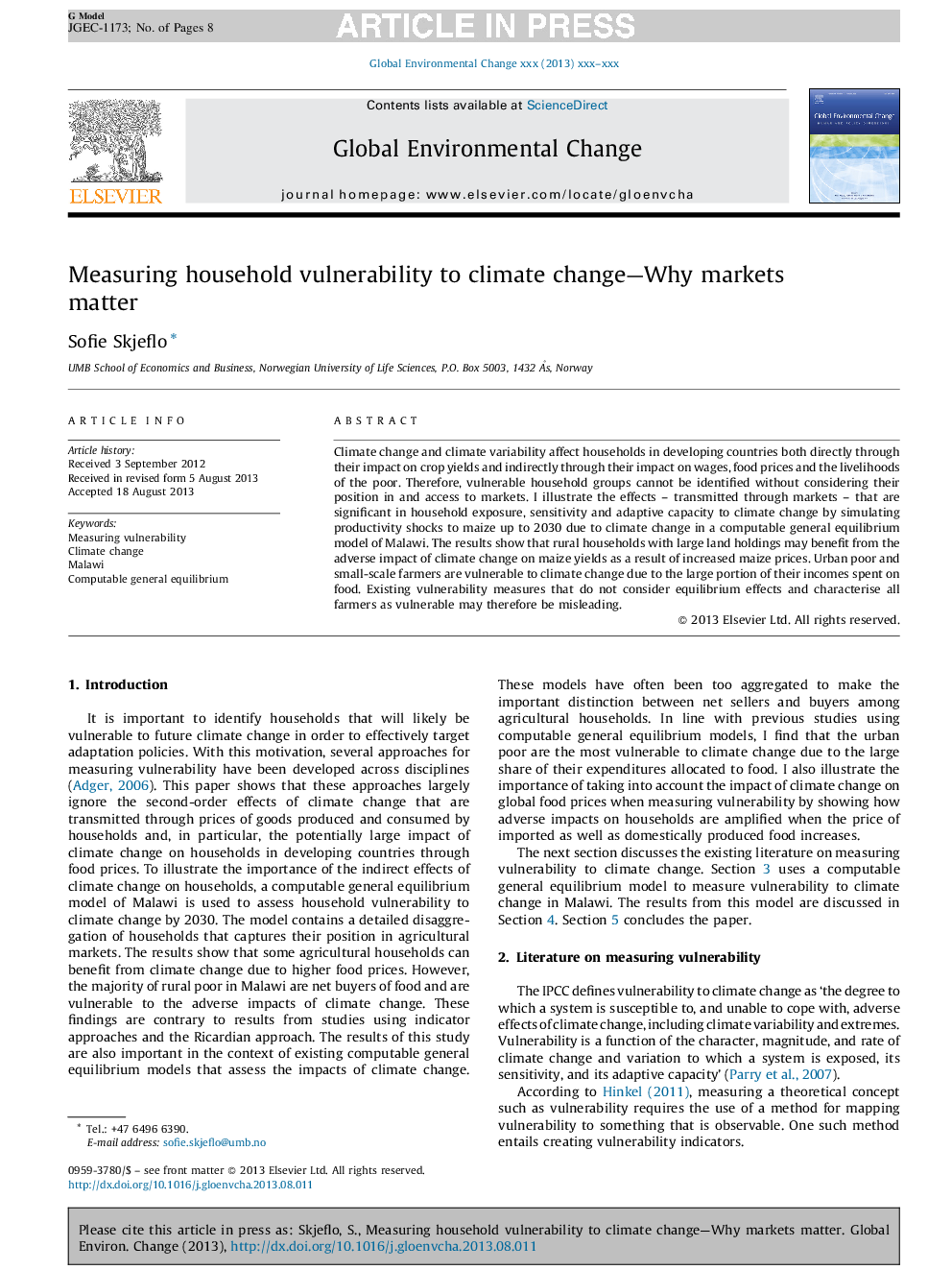| Article ID | Journal | Published Year | Pages | File Type |
|---|---|---|---|---|
| 10505042 | Global Environmental Change | 2013 | 8 Pages |
Abstract
Climate change and climate variability affect households in developing countries both directly through their impact on crop yields and indirectly through their impact on wages, food prices and the livelihoods of the poor. Therefore, vulnerable household groups cannot be identified without considering their position in and access to markets. I illustrate the effects - transmitted through markets - that are significant in household exposure, sensitivity and adaptive capacity to climate change by simulating productivity shocks to maize up to 2030 due to climate change in a computable general equilibrium model of Malawi. The results show that rural households with large land holdings may benefit from the adverse impact of climate change on maize yields as a result of increased maize prices. Urban poor and small-scale farmers are vulnerable to climate change due to the large portion of their incomes spent on food. Existing vulnerability measures that do not consider equilibrium effects and characterise all farmers as vulnerable may therefore be misleading.
Related Topics
Life Sciences
Environmental Science
Environmental Science (General)
Authors
Sofie Skjeflo,
